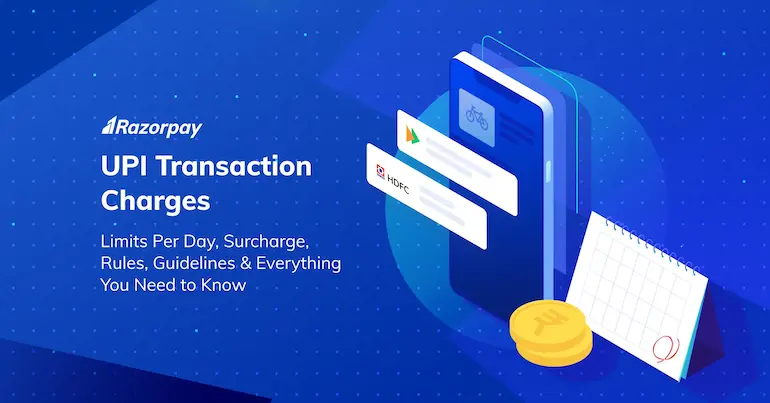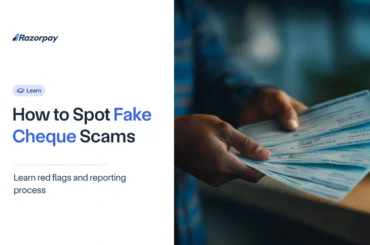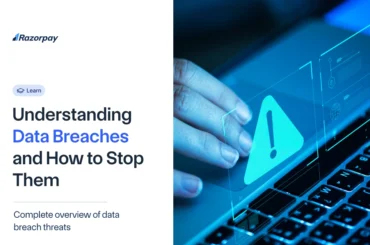The Unified Payments Interface (UPI) was developed by the National Payments Corporation of India (NPCI) to facilitate seamless, real-time bank-to-bank transactions. With UPI, users can effortlessly transfer money to friends, pay utility bills, or make payments to merchants directly from their bank accounts using mobile apps. Today, UPI has become the go-to payment solution in India, thanks to its ease of use, quick processing, and the fact that it offers free transactions for most users.
Table of Contents
What is a Prepaid Payment Instrument (PPI) in UPI?
A Prepaid Payment Instrument (PPI) is a digital wallet or prepaid card that stores money electronically, allowing users to make payments through UPI. Popular PPIs include wallets like Paytm, PhonePe, and Amazon Pay, enabling seamless transactions for both peer-to-peer (P2P) and peer-to-merchant (P2M) payments. While UPI itself is free, PPIs may attract interchange fees for transactions exceeding ₹2,000, depending on the merchant and service.
UPI Transaction Limit Per Day
The UPI transaction limit per day is set at ₹1 lakh by the National Payments Corporation of India (NPCI). For UPI 123Pay, the per-transaction limit is ₹10,000. Users are also restricted to a maximum of 20 UPI transactions in a single day.
For specific transactions, higher UPI transfer limit of ₹5 Lakh is applicable, such as:
- Tax payments
- Payments to educational institutions and hospitals
- IPO applications
- Payments to RBI’s retail direct schemes
It’s important to note that these UPI transfer limits can vary between banks, with some institutions offering daily transfer limits ranging from ₹25,000 to ₹1 lakh. Additionally, certain banks may impose weekly or monthly limits instead of daily ones.
As of April 2024, UPI payments in sectors like capital markets, foreign remittances, and insurance have a ₹2 lakh daily limit. For verified merchants in education and healthcare, the UPI limit is extended to ₹5 lakh per day.
If you exceed these limits, you’ll need to wait for the 24-hour cycle to reset before making further transfers.
UPI Transaction Limit Per Week
The weekly UPI transaction limit varies depending on the bank, and it’s set individually within the UPI network. Some banks impose their own limits for weekly transactions.
Example: For IDFC Bank, the weekly UPI transaction limit is ₹1,00,000.
UPI Transaction Limit Per Month
The monthly UPI transaction limit is applicable to some public and private sector banks and differs across financial institutions.
Example: IDFC Bank’s UPI transaction limit per month is ₹30,00,000.
UPI Transaction Limits for Top Banks in India
The basic UPI limit per day and number of transaction limits set by NPCI are common, that is, Rs 1,00,000 in a day or up to a maximum of 20 transactions. However, banks can have individual limits. Here are the details of some of the most common banks –
|
Bank Name |
UPI Daily Limit |
UPI Transaction Limit |
|
SBI |
Rs. 1,00,000 |
Rs. 1,00,000 |
|
PNB |
Rs. 100,000 |
Rs. 1,00,000 |
|
IDFC |
Rs. 1,00,000 |
Rs. 1,00,000 |
|
Allahabad Bank |
Rs. 1,00,000 |
Rs. 1,00,000 |
|
Bank of India |
Rs. 1,00,000 |
Rs. 1,00,000 |
|
Indian Overseas Bank |
Rs. 1,00,000 |
Rs. 1,00,000 |
However, these limits are subject to change and may differ based on the type of UPI transaction, such as peer-to-peer or merchant payments. It is important to check with your bank or payment service provider for the specific UPI transfer limit applicable.
Related Read: What is the SBI UPI Transaction Limit Per Day?
UPI Transaction Charges in 2026 for Individuals
As per NPCI, there are no transaction charges for personal UPI payments, regardless of the amount. Whether you’re paying for groceries, sending money to friends, or making any other personal transactions, UPI remains completely free for individuals.
UPI transactions are free for:
- Peer-to-peer (P2P) UPI payments: These are UPI transfers between individuals, allowing users to send money directly to friends or family with ease. For example, you can split a bill with a friend or send money as a gift without incurring any charges.
- Peer-to-merchant (P2M) UPI payments: This refers to payments made directly from a bank account to a merchant. When you purchase goods or services from a shop or through online transaction using UPI, the payment is processed directly, making transactions quick and seamless. This option is especially popular for small businesses that accept UPI payments.
Related Read: Bima ASBA: IRDAI’s New UPI-Based Insurance Payment System
UPI Transaction Charges in 2026 for Merchants
Merchants are subject to interchange fees on UPI payments made through Prepaid Payment Instruments (PPI) like digital wallets (e.g., Amazon Pay, PhonePe, Paytm). These fees apply to transactions exceeding ₹2,000 and vary based on the type of transaction:
- Fuel: 0.5%
- Post office, telecom, utilities, agriculture, education: 0.7%
- Supermarkets: 0.9%
- Insurance, mutual funds, railways: 1.1%
Merchants must bear these interchange charges when customers use PPIs to make payments. However, small merchants are exempt, and medium-sized merchants only pay these fees for transactions over ₹2,000.
For high-value transactions, merchants can either absorb these fees or pass them on to customers, depending on their cost management strategy.
Additionally, the NPCI has introduced a wallet-loading service charge of 0.15% for PPI issuers when wallet recharges exceed ₹2,000. This fee is borne by the issuer (e.g., Amazon or Paytm) and not by the customer.
Related Read: How To Make UPI Payment Without Internet?
UPI Transaction Charges and Limit Across Different UPI Apps
With the increasing popularity of UPI, various apps have emerged, each offering distinct features and charging different fees for transactions. Here’s a detailed breakdown of the UPI transaction charges and UPI transaction limits associated with some of the most widely used UPI apps in 2026:
PhonePe UPI Fees and Limit
- PhonePe Charges: PhonePe offers free UPI transactions for individual users, including both peer-to-peer (P2P) and peer-to-merchant (P2M) payments. However, merchants may incur interchange fees ranging from 0.5% to 1.1%, depending on the service category.
- PhonePe Transaction Limit: Users can transact up to ₹1 lakh per day, with a maximum of 20 transactions allowed. Newly registered PhonePe UPI users are initially limited to Rs. 5,000 within the first 24 hours.
Google Pay UPI Charges and Limit
- Gpay Charges: Google Pay does not impose any fees on users for P2P or P2M transactions. Merchants utilizing Google Pay for transactions may incur interchange fees based on the type of service.
- Transaction Limit: The daily transaction limit for GPay users is set at ₹1 lakh, with a cap of 20 transactions per day. For newly registered GPay users, an initial UPI transaction limit of ₹5,000 is applicable for the first 24 hours.
Paytm UPI Charges and Limit
- Charges: Paytm allows free UPI transactions for users, making it convenient for personal payments. Merchants may face interchange fees on transactions, particularly those exceeding ₹2,000.
- Transaction Limit: Users can conduct transactions up to ₹1 lakh per day, with limits varying by bank. For newly registered Paytm UPI users, an initial UPI transaction limit of ₹5,000 is applicable for the first 24 hours.
Amazon Pay UPI Charges and Limit
- Charges: Amazon Pay does not charge users for sending money or making payments through UPI. Merchants may need to cover interchange fees similar to other payment gateway providers India.
- Transaction Limit: Users can make UPI transactions up to ₹1 lakh per day, following the standard UPI guidelines. For newly registered Amazon Pay UPI users, an initial UPI transaction limit of ₹5,000 is applicable for the first 24 hours.
BHIM App UPI Charges and Limit
- Charges: The BHIM app provides free UPI transactions for both individuals and merchants. However, merchants may be subject to interchange fees depending on the type of transaction processed.
- Transaction Limit: The transaction limit for users is ₹1 lakh per day, with a maximum of 20 transactions allowed. For newly registered BHIM UPI users, an initial UPI transaction limit of ₹5,000 is applicable for the first 24 hours.
Related Read: Updated UPI Transaction Limit for Tax Payments
Related Read: GST on UPI Payments
UPI New Rules and Guidelines
1. Transaction Limit Increase for UPI 123Pay:
The RBI has doubled the per-transaction limit for UPI 123Pay from Rs 5,000 to Rs 10,000 on October 9, 2024. This change significantly benefits feature phone users, allowing them to conduct higher-value transactions with ease.
2. Increase in UPI Lite Wallet Limit:
The limit for UPI Lite wallets has also been raised from Rs 2,000 to Rs 5,000 on October 9, 2024. This adjustment aims to simplify small-value digital transactions, enhancing convenience for users.
3. Volume Cap on UPI Apps:
To prevent monopolistic practices in the UPI ecosystem, NPCI has proposed a 30% volume cap on transactions processed by any single UPI app. This cap is designed to promote fair competition among Third Party App Providers (TPAPs). The implementation deadline for this cap has been extended to December 31, 2024.
4. Interchange Fee Structure:
As outlined earlier, an interchange fee of up to 1.1% will be applicable for merchants on UPI transactions exceeding Rs. 2000 when processed through Prepaid Payment Instruments (PPIs). This fee aims to cover the costs associated with transaction processing and authorizations.
5. Exemption for Small Merchants:
To support small businesses, the interchange fees will not apply to small merchants for transactions below Rs. 2000. This exemption aims to encourage more merchants to adopt UPI as a payment method without incurring additional costs.
Related Read: How to Reverse Wrong UPI Transactions?
Frequently Asked Questions (FAQs)
1. Is there any GST charge on UPI transactions?
No, there are no GST charges specifically on UPI transactions themselves. However, the GST Council may consider imposing an 18% tax on payment aggregators for small transactions up to ₹2,000.
2. What is the maximum amount transferable through UPI?
As of 2026, the maximum amount that can be transferred through UPI is ₹1 lakh per day. Additionally, UPI 123Pay has a per-transaction limit of ₹10,000. However, these limits may vary depending on the bank and user-specific settings, with some banks imposing their own restrictions.
3. How can I find my bank’s UPI transaction charges?
Usually, for normal transactions, i.e. bank account to bank account-based UPI payments, there are no charges per NPCI. For PPI transactions, i.e. payments made through wallets or other prepaid instruments, there are interchange fees of up to 1.1% on transactions above Rs. 2,000 that are borne by merchants.
4. How can I avoid or minimize UPI transaction charges?
As a merchant, you can avoid or minimize UPI transaction or payment gateway charges by following these tips:
-
Use bank account-based UPI payments instead of wallet-based ones. There are no charges for bank-to-bank UPI payments.
-
If you use wallet-based UPI payment links, try to keep the transaction value below Rs. 2,000. The interchange fee of 1.1% is only applicable for transactions above Rs. 2,000.
-
Negotiate with your UPI payment gateway or payment service provider to reduce the interchange fee or pass it on to the customer.
5. Are there any exemptions from UPI transaction charges?
Yes. For normal bank-to-bank UPI transactions, there are no charges as per NPCI. Besides that, transactions below Rs. 2,000 do not attract interchange fees for payments made through wallets or other prepaid instruments.
6. Can merchants pass on UPI transaction charges to customers?
Merchants have the option to pass on UPI transfer charges to customers as per the guidelines issued by the Reserve Bank of India (RBI).





